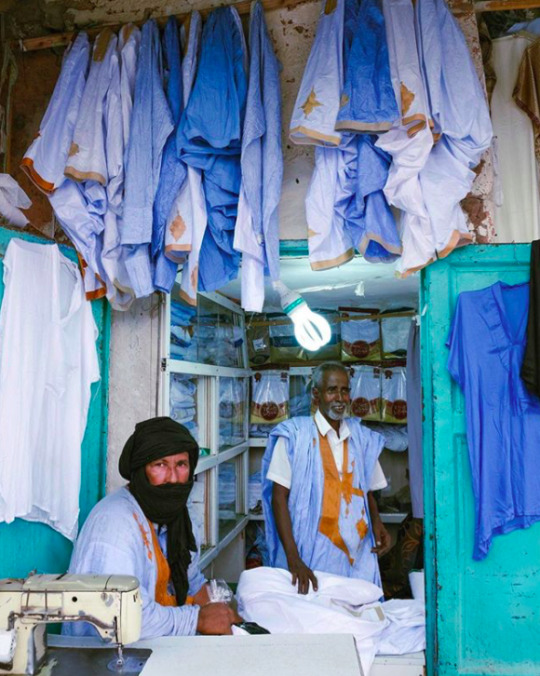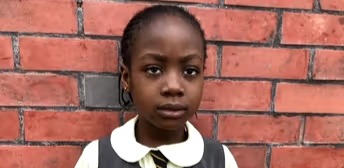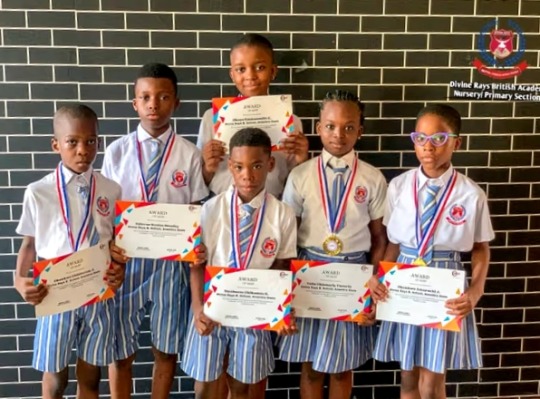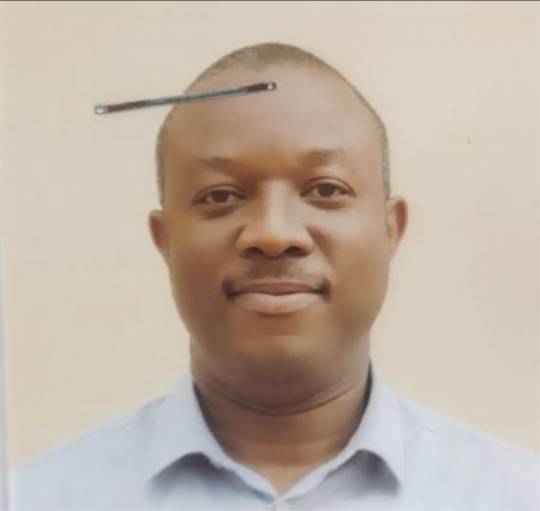#anambra state
Explore tagged Tumblr posts
Text

Here’s Dr Ugochukwu Nwizu from Ozubulu Ekusigo Local Government Area, Anambra state.
She’s the 2023 best University of Nigeria graduating doctor.
She’s also the best student in medicine and surgery, physiology with eight distinctions in Anatomy, Biochemistry, Oral biology, Pathology, Pharmacology and Maxillofacial surgery. A genius.
#ugochukwu nwizu#ozubulu ekusigo#anambra state#igbo#african#brown skin#brownskin#university of nigeria#anatomy#biochemistry#oral biology#pathology#pharmacology#maxillofacialsurgery#genius
7 notes
·
View notes
Text
Igbo Enemies Exploiting My Detention to Attack Southeast – Nnamdi KanuBy Karen James The leader of the Indigenous People of Biafra (IPOB), Nnamdi Kanu, has alleged that enemies of the Igbo people are using his continued detention to carry out attacks on communities in the Southeast. He claimed that such assaults would not have occurred if he were free.Kanu made these remarks during a routine…
0 notes
Text
Police storm criminal hideout in Anambra, seize hard drugs and cash
The Anambra State Police Command has uncovered a criminal hideout at Umudike, Amaokpala in Orumba North Local Government Area, recovering various illegal items during a raid. In a press statement on Monday, the Command’s spokesperson, SP Tochukwu Ikenga, revealed that the operation, conducted by a joint security team on January 25, 2025, around 10:30 pm, was based on intelligence reports. The…
0 notes
Text
BREAKING: The Anambra Christmas rice scramble claimed 12 lives and injured 32
BREAKING: The Anambra Christmas rice scramble claimed 12 lives and injured 32 A philanthropist and son of the town, Chief Earnest Obiejesi, also known as Obi Jackson, organized the rice distribution, causing a stampede that is thought to have injured over 32 people in varying degrees. As part of his foundation’s endeavor to help his kinsmen, philanthropist Obiejesi has reportedly made the…
0 notes
Text
Cheap 1 bedroom decor new apartment visit website here shopping tips for rent in an estate very cute contemporary home pop false ceiling design light kitchen furniture setup already painted white located at Adageorge road off iwofe axis in port Harcourt city rivers state Nigeria
#rivers state#abuja#vietnam#wike#bangladesh#nysc#nigeria#youtube#portharcourt#lagos#peterobi#labourparty#labour party#Adeniyi Jones#owerri#kano#jigawa state#uyo#calabar#ebonyi#anambra state#bayela#whitebedroom#bedroom#home decor#living room#interior#kitchen#fireplace
1 note
·
View note
Photo
In the Encyclopedia of Clothing and Fashion (2005), Leslie W. Rabine describes the boubou as:
“the classic Senegalese robe, worn by both men and women all over West Africa and in West African diasporic communities of Europe and the United States. Sewn from a single piece of fabric, the boubou is usually 59 inches (150 cm) wide and of varying lengths. The most elegant style, the grand boubou, usually employs a piece of fabric 117 inches (300 cm) long and reaches to the ankles. Traditionally, custom-made in workshops by tailors, the boubou is made by folding the fabric in half, fashioning a neck opening, and sewing the sides halfway up to make flowing sleeves. For women the neck is large and rounded; for men it forms a long V-shape, usually with a large five-sided pocket cutting off the tip of the ‘V.’ When stiffly starched and draped over the body, the boubou creates for its wearer the appearance of a stately, elegant carriage with majestic height and presence. Men wear the classic boubou with a matching shirt and trousers underneath. Women wear it with a matching wrapper or pagne and head-tie.”
This traditional blue indigo-dyed boubou (Fig. 1) is decorated with geometric and figural embroidery which shows the prestige and importance of the wearer. These Islamic motifs were for protection and this boubou was only worn for special occasions.
In the Berg Encyclopedia of World Dress and Fashion: Africa (2010), Babatunde Lawal explains a possible origin for the boubou:
“It has been suggested that the Berbers/Tuaregs from North Africa might have introduced some of these robes and trousers to western and central Africa in the course of the trans-Saharan trade that started before the Christian era and lasted until the late nineteenth century. Some of the earliest evidence of the flowing robe in sub-Saharan Africa comes from a ninth-century c.e. burial site excavated at Igbo-Ukwu in eastern Nigeria.”
This indigo-dyed cotton robe (Fig. 2) is a single piece of fabric which creates the flowing drapery on the body. There is a slit in the center where the wearers head goes through then the rest of the fabric drapes down.
The boubou can also be designed with patterns and imagery. This boubou (Fig. 3) includes alternating strips of fabric sewn together. Both fabric sections are indigo dyed, one being light blue and the other being dark to create a contrasting striped pattern. Around the squared neck hole is geometric hand-sewn embroidery in red, white, brown, and black.
While traditionally a robe for men, in the twentieth century women also began to wear a version of the boubou, as Lawal notes:
“Women sometimes wear a loose blouse or robe (called boubou in Senegambia and Mali) on top of their wrappers.”
In the Berg Encyclopedia of World Dress and Fashion: Africa (2010), Hudita Nura Mustafa explains the complexity of the boubou:
“While building upon enduring forms and values, dress also possesses a fertile capacity to evolve. For example, billowing boubous, robes of six meters (twenty feet), simply cut and often richly embroidered around the neck, are recognized the world over as traditionally West African. Yet the boubou is not a static symbol of origin but an object of dynamic dialogue between tradition and modernity, hybridity and authenticity. It was further spread by Islamization in the nineteenth century and, while the basic form stays constant, it has its own fashions.”
Mustafa further elaborates:
“Although the basic categories of dress are traditional/African and modern/European, the diversity of styles transcends this opposition. These categories are symbolized in the French suit, the attire of the civilized black Frenchman, and the embroidered boubou, the attire of the traditional Muslim man. The embroidered boubou is, and has always been, the pinnacle of prestige. African dress is associated with religious and traditional ceremonial events, domestic space, and modesty.”
This cotton boubou (Fig. 4) made for a man is embroidered with red, white and blue wool has a squared neck opening for a more masculine effect. The length of this boubou is more conservative and not particularly long and the geometric designs depicted across the front and back show how customizable this garment is.

Boubou tailors in Nouakchott, Mauritania.
Instagram: ricci_s
#studyblr#history#archaeology#trade#commerce#clothing#burials#mauritania#senegal#amazigh#tuareg people#nigeria#anambra state#nouakchott#igbo-ukwu#leslie w. braine#babatunde lawal#hudita nura mustafa#trans-saharan trade#to read
107 notes
·
View notes
Text
Primary school pupil gets ₦21m scholarship for scoring 100% in maths competition

The mathematics wunderkind recorded the feat in a highly competitive national competition where the brightest minds from across the country jostled for the honour.
A young mathematical genius, Ugwoezuonu Ogechi Zara, has bagged a scholarship worth ₦21 million after scoring a perfect score of 100% in the National Mathematics Competition.
The precocious pupil contested in the primary category of the competition, organised by the Mathematics Association of Nigeria (MAN).
Her exceptional feat was announced by an education activist and Chief Executive Officer of Educare, Alex Onyia, in a post on X on Friday, May 17, 2024.
“Ugwoezuonu Ogechi Zara scored a perfect score of 100% in the primary category of the National Mathematics Competition organised by the Mathematics Association of Nigeria (MAN),” Onyia said.
Pupil bags reward for mathematical excellence

Accordingly, Zara's flawless performance has helped her secure a full six-year scholarship at Evergreen College in Enugu State.
“She has been awarded a full scholarship worth N21 million to study for six years at Evergreen College, Enugu,” Onyia added.
The annual national mathematics competition is where the brightest minds from across the country converge to jostle for honours.
In a related development, six students from Divine Rays British School in Idemili North Local Government Area of Anambra State came out tops in the 2024 edition of the National Mathematics Competition (NMC).
The just-concluded contest, organised by Catalyst Consulting, was held across designated states in the country, covering all classes in primary and secondary schools.
#mathematical genius#scholarship#Educare#Anambra State#sage response#nigeria#likesforlike#youtube#lagos
1 note
·
View note
Text
Court Sentence FCMB Branch Manager to 121 years in Prison for embezzling Customers Funds
FCMB is a leading financial institution in Nigeria has received a big shock of the year as one of its staff has been thrown to prison for fraud and embezzlement. Justice S. Odili at the Anambra State High Court in Onitsha, Anambra State, sentenced Mr Nwachukwu Placidus, a bank manager at First City Monument Bank FCMB, Onitsha Anambra State to 121 years in prison for embezzling N112 million from a…

View On WordPress
0 notes
Text
Man tries to escape with stolen child
Police Operatives attached to the Ogidi Area Command in Anambra State have arrested a man while he was trying to escape with a five years old stolen child. Anambra State police command’s spokesperson, SP Tochukwu Ikenga who disclosed this in a press release said the arrest was successful because of credible information by indigenes of the area. He said the suspect, one Joshua Simeon, male,…
0 notes
Text
Man who burnt wife to d3ath plead with his children for forgiveness as Anambra State Govt insists justice must take full course
Man who burnt wife to d3ath begs his children for forgiveness as Anambra State Govt insists justice must take full course The man who burnt his wife to death over suspicion of infidelity in Anambra State has apologized to his five sons for the dastardly act. Obiozor Sunday Nwaka, a welder, accused his Blessing Chioma Nwaka of infidelity which led to a heated disagreement during which he poured…
0 notes
Text
Police Foil Kidnap Attempt On Foreigner In Anambra
Police Foil Kidnap Attempt On Foreigner In Anambra Operatives of the Anambra State Police Command have foiled the attempted abduction of a foreigner by armed hoodlums, suspected to be members of a secessionist group. This was revealed in a statement by the state police spokesperson, SP Tochukwu Ikenga, on Monday. Ikenga disclosed that the incident occurred in the Ogbunka community in Orumba…
0 notes
Text
Anambra Keke Drivers Plead for Government Intervention Against Touts in Awka.. SASA Help Us.
By Karen James The Anambra State Keke Driver Forum (AKDF) has called on the state government to remove touts harassing tricycle operators in Awka. During a meeting, the chairman, Comrade Osita Obi, urged Keke drivers to trust and support the “Solution Government” led by Governor Chukwuma Soludo, emphasizing that their taxes are being used to develop and secure the state. Uchenna Umeh, the…
0 notes
Text
Police Look Into Staff Members' Allegations of Organ Harvesting Still Uncertain – Group
Remember how Nnamdi Emeh, a whistleblower, revealed an organ trafficking network in the Nigeria Police Force’s Anambra State Command in 2023? Following his shocking disclosures, he was later arrested on false pretenses of possessing firearms, money laundering, character assassination, and transferring N47 million illegally from one account to another. According to information obtained, the…
0 notes
Text
Renter friendly apartment makeover modern Cornish massive two bedrooms apartment to rent on a very low budget home nice spacious sitting room grab this affordable housing unit now located at Rumuosi new layout in port Harcourt city rivers state
#rivers state#abuja#vietnam#wike#bangladesh#nigeria#lagos#nysc#youtube#portharcourt#Anambra#Lewandowski#robert lewandowski#mariusz lewandowski#corey lewandowski#juliusz lewandowski
1 note
·
View note
Text
Police Provide Updates On Attack On US Embassy Staff In Anambra State
The Nigerian Police has provided further updates regarding the attack on US embassy staff in Anambra State, shedding light on the tragic incident that occurred in Ogbaru Local Government Area on Tuesday. Naija News had earlier reported that four persons lost their lives in the attack. The Police Public Relations Officer, DSP Ikenga Tochukwu revealed that among the victims were two policemen and…

View On WordPress
0 notes
Text
Governor Soludo's Daughter Ties the Knot in London
Adaora, the first daughter of Anambra State Governor, Prof. Charles Soludo, has married her partner, Arinze, in a civil wedding ceremony held in London. The intimate ceremony took place on July 26, 2024, with the fashion entrepreneur sharing lovely photos from the special day on Instagram. “Married my best friend in the intimate wedding of my dreams, surrounded by family,” she captioned the…
0 notes